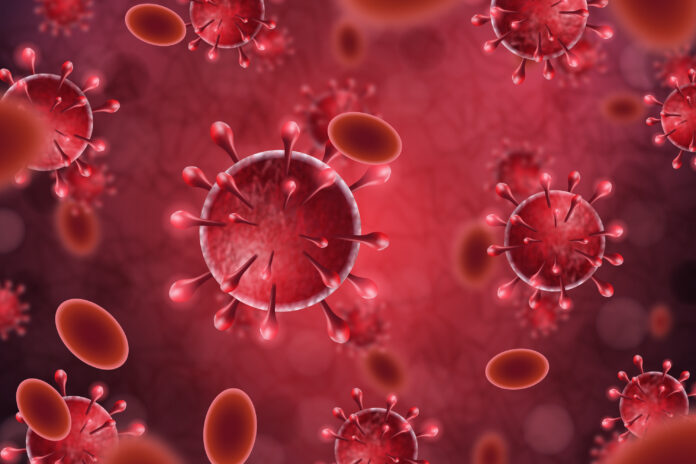Blood cancer, also known as Hematological malignancy, refers to a category of tumors that affect the development and function of blood cells. Blood cancer develops in the bone marrow or lymphatic system and causes abnormal cell growth and division. It has many types, including leukemia, lymphoma, and multiple myeloma.
Blood cancer, also known as hematologic cancer, affects the production and function of blood cells. It encompasses several types, including leukemia, lymphoma, and myeloma. These cancers can have a significant impact on a person’s health and well-being. In this article, we will delve into the different types of their symptoms, and the available treatment options.
Common symptoms include fatigue, unexplained weight loss, frequent infections, easy bruising or bleeding, and swollen lymph nodes. Bone marrow biopsies, imaging tests, and blood tests are frequently used in diagnosis.
Several treatment options are available. However, it depends on the type and stage of the disease, including chemotherapy, radiation therapy, targeted therapy, immunotherapy, and stem cell transplantation.
Being one of the Best Cancer Treatment Hospitals in Hyderabad, we provide a personalized attention to every patient and their treatment in a comfortable environment. It is safe to say that Punarjan Ayurveda Hospital is the haven of Cancer Care and Treatment.

Symptoms of Blood Cancer:
The symptoms of blood cancer, sometimes called hematological malignancy, vary based on the type and stage of the disease. Here are a few common symptoms:
- Fatigue: Chronic fatigue and low energy levels frequently unrelated to activity can be an early indicator of blood cancer. A disruption in the development and function of normal blood cells leads to fatigue.
- Unexplained Weight Loss: Blood cancer can be indicated by sudden, unintended weight loss without any food or exercise routine modifications. Cancer cells can affect the body’s metabolism, causing it to slow down and result in weight loss.
- Recurrent Infections: Blood cancer impairs the immune system, weakening defenses against infection. It is essential to be checked if a condition is frequent or severe and does not improve with treatment.
- Easy Bruising or Bleeding: Blood cancer can affect the blood’s ability to clot, leading to frequent nosebleeds, prolonged bleeding from small incisions, and easy bruising.
- Swollen Lymph Nodes: may be present if there are enlarged lymph nodes, which are frequently seen in the groin, armpit, or neck. Lymph nodes might feel uncomfortable, sensitive, or swollen.
Remembering several different illnesses can create the same symptoms is crucial. Consult a healthcare provider for a precise diagnosis if you have persistent or alarming signs.
Types of Blood Cancer:
a. Leukemia: This type of blood cancer affects the bone marrow and results in the overproduction of abnormal white blood cells.
b. Lymphoma: Lymphoma originates in the lymphatic system, leading to the abnormal growth of lymphocytes, a type of white blood cell.
c. Myeloma: Myeloma affects plasma cells, which are responsible for producing antibodies that help fight infections.
Symptoms of Blood Cancer:
Symptoms of blood cancer can vary depending on the type and stage of the disease. Common signs include:
Fatigue and weakness
Frequent infections
Unexplained weight loss
Easy bruising and bleeding
Enlarged lymph nodes
Bone pain and fractures
Night sweats and fever
Diagnostic Procedures:
Diagnosing involves several tests, including:
Blood tests to evaluate the levels of blood cells and detect abnormalities.
Bone marrow biopsy to examine the cells within the bone marrow.
Imaging tests, such as CT scans or PET scans, to determine the extent of the disease.
Blood Cancer Treatment:
The type and stage of the disease impact the treatment. Here are a few common approaches:
Chemotherapy: Strong medications are used in this therapy to kill or stop cancer cell development. You can give it to someone orally, intravenously, or straight into the blood. When treating blood cancer, chemotherapy is frequently used alone or in combination with other treatments.
Targeted Therapy: This therapy concentrates on certain flaws or molecular targets in cancer cells. Targeted therapies cause the most negligible impact on healthy cells while interfering with the growth and spread of cancer.
Immunotherapy: This approach improves the body’s immune system’s capacity to identify and combat cancer cells. Immune inhibitors of checkpoints, CAR-T cell therapy, and monoclonal antibodies are all examples of immunotherapy.
Stem Cell Transplantation: Healthy stem cells replenish injured or destroyed bone marrow. It can be allogeneic (using donor cells) or autologous (using the patient’s cells).
The objective is to control symptoms to enhance patients’ quality of life and to achieve remission, where the cancer is no longer detectable.
Conclusion:
A complicated category of disorders known as blood cancer influences the development and operation of blood cells. Early detection depends on identifying the symptoms, which include fatigue, weight loss, infections, bruises, and enlarged lymph nodes.
The successful management of depends heavily on regular medical monitoring and personalized treatment plans.
Being the Best Cancer Hospital in Bangalore, Punarjan Ayurveda dedicates all its services to eliminate the deadly fear of cancer.






